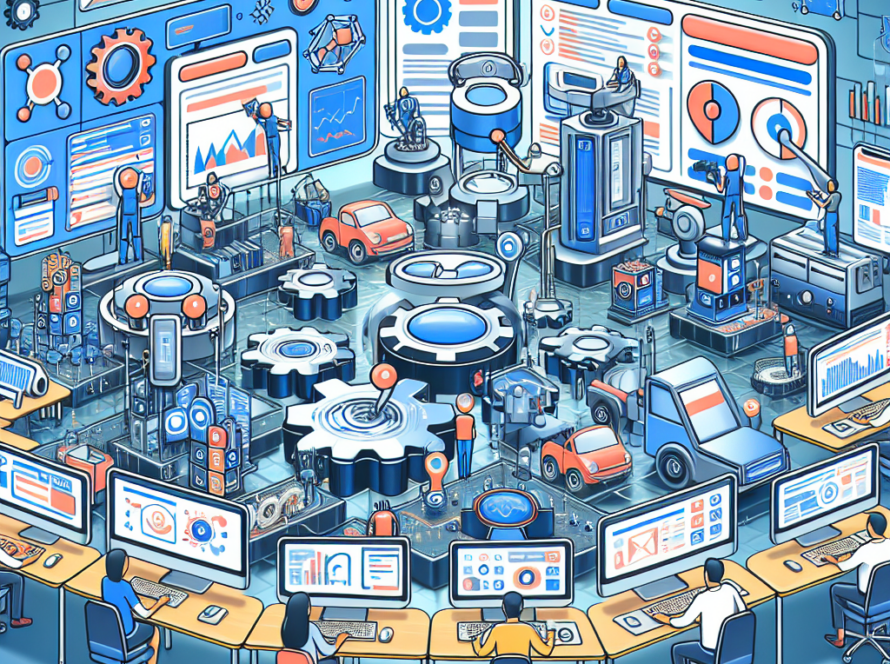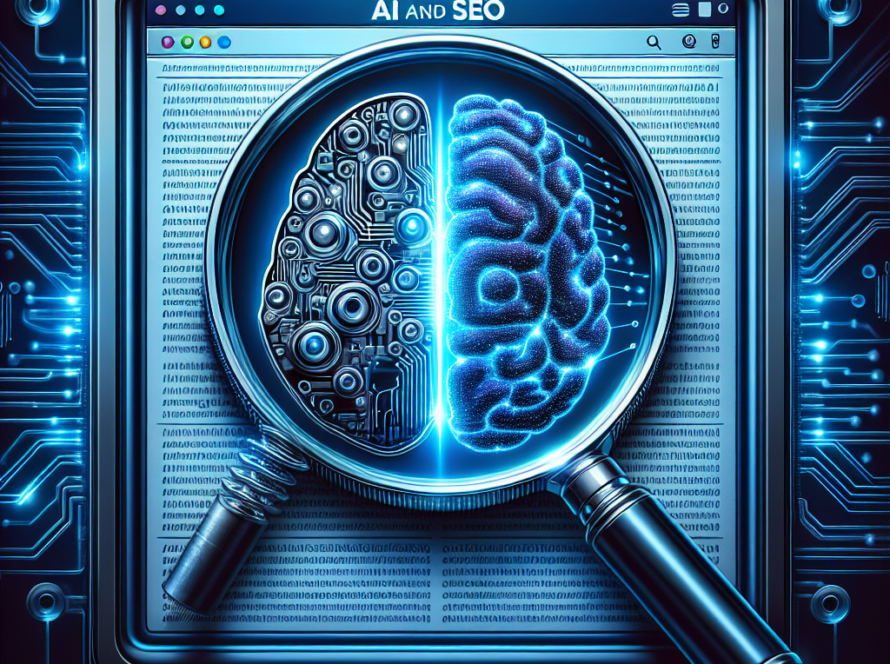What is Marketing Intelligence?
In a fast-paced and highly competitive business landscape, it is crucial for companies to have a deep understanding of their target market in order to make informed decisions and develop effective marketing strategies. This is where marketing intelligence comes into play. Marketing intelligence involves the gathering and analysis of market data to gain actionable insights that can drive business growth.
Traditionally, gathering market data was a time-consuming and labor-intensive process. However, with the advent of artificial intelligence (AI), this process has been revolutionized. AI-powered tools can now automate the collection and analysis of huge amounts of data, allowing businesses to gain valuable insights in a fraction of the time it would take using traditional methods.
Predictive Analytics: Uncover Hidden Patterns and Anticipate Customer Behavior
Predictive analytics is a powerful tool that allows businesses to uncover hidden patterns in data and anticipate customer behavior. By analyzing historical data, businesses can identify trends and patterns that can help them predict future customer actions.
For example, an e-commerce company may use predictive analytics to identify customers who are likely to churn so they can proactively reach out with targeted offers or incentives to retain them. By understanding customer behavior patterns, businesses can tailor their marketing strategies to better meet the needs and preferences of their target audience.
Competitive Insights: Monitor and Surpass Competitor Strategies
In today’s highly competitive business landscape, it is crucial for companies to stay ahead of their competitors. With AI-powered tools, businesses can monitor their competitors’ strategies in real-time and gain a competitive edge.
For example, an online retailer may use AI tools to track their competitors’ pricing strategies and adjust their own prices accordingly to stay competitive in the market. By staying informed about what their competitors are doing, businesses can make more informed decisions about their own marketing strategies and stay one step ahead of the competition.
Targeted A/B Testing: Identify High-Potential Variations for Increased ROI
A/B testing is a widely used technique in marketing that involves comparing two versions of a webpage or marketing campaign to determine which one performs better. Traditionally, A/B testing involved manually creating variations and analyzing the results. However, with AI-powered tools, businesses can now automate this process and identify high-potential variations for increased return on investment (ROI).
For example, an e-commerce company may use AI tools to automatically generate different variations of a product page and test them against each other to see which one drives more conversions. By using AI algorithms to analyze the results in real-time, businesses can quickly identify the most effective variation and optimize their marketing campaigns for maximum ROI.
Optimizing Your Marketing Engine with AI
With the integration of AI into marketing optimization practices, businesses can take their marketing efforts to new heights. AI goes beyond traditional testing methods by automating complex experiments and analyzing nuanced data. It provides real-time performance analysis that allows marketers to gain instant insights and adapt campaigns on the fly. Additionally, AI enables personalized experimentation that caters to individual segments for hyper-relevant testing.
Beyond Traditional Testing: AI Goes Deeper, Automating Complex Experiments and Analyzing Nuanced Data
Traditional A/B testing involves comparing two versions of a webpage or marketing campaign to determine which one performs better. While this method has proven effective, AI takes it a step further by automating complex experiments and analyzing nuanced data.
For example, instead of manually creating variations of a product page, AI-powered tools can automatically generate multiple variations based on different factors such as layout, color scheme, and call-to-action placement. This allows businesses to test a wider range of variables and uncover insights that may have been missed with traditional A/B testing methods.
Real-time Performance Analysis: Gain Instant Insights and Adapt Campaigns on the Fly
One of the key advantages of using AI in marketing optimization is the ability to gain real-time insights into campaign performance. AI-powered tools can analyze data in real-time and provide instant feedback on how campaigns are performing.
For example, if an email marketing campaign is not generating the desired results, AI algorithms can quickly identify areas for improvement and suggest changes that can be implemented immediately. This allows marketers to adapt their campaigns on the fly and make data-driven decisions in real-time.
Personalized Experimentation: Cater to Individual Segments for Hyper-Relevant Testing
Personalization is a key trend in marketing today, as customers increasingly expect personalized experiences from brands. With AI-powered tools, businesses can conduct personalized experimentation that caters to individual segments for hyper-relevant testing.
For example, instead of conducting a single A/B test for all customers, businesses can use AI algorithms to segment their audience based on factors such as demographics, browsing behavior, or purchase history. This allows them to create personalized variations for each segment and test them separately. By tailoring experiments to specific segments, businesses can gain more accurate insights and optimize their marketing strategies accordingly.
AI-Driven Conversion Rate Optimization (CRO)
Conversion rate optimization (CRO) is a critical aspect of marketing that focuses on improving the percentage of website visitors who take a desired action, such as making a purchase or filling out a form. AI-driven CRO takes this optimization process to the next level by leveraging AI algorithms to understand user psychology, personalize touchpoints, and proactively identify conversion bottlenecks.
Understand User Psychology: AI analyzes web journeys and predicts customer actions.
To optimize conversion rates effectively, it’s crucial to understand user psychology. This is where AI-powered tools come into play. These tools can analyze web journeys and predict customer actions based on historical data and behavioral patterns.
For example, let’s consider an e-commerce company that wants to improve its conversion rates. By using AI algorithms to analyze how users navigate their website, which products they view, and how long they spend on each page, the company can gain valuable insights into user behavior. With this understanding, they can create variations that align with users’ preferences and increase the likelihood of conversions.
AI can also predict customer actions by analyzing factors such as demographics, browsing behavior, and purchase history. By understanding what drives customers to take specific actions, businesses can tailor their marketing strategies to better meet their needs and preferences.
By leveraging AI-driven tools to understand user psychology, businesses can make data-driven decisions that lead to higher conversion rates.
Hyper-Personalized Touchpoints: Optimize every interaction for individual conversions.
With AI-driven CRO techniques, businesses can optimize every interaction for individual conversions by delivering hyper-personalized touchpoints.
For example, imagine an online retailer that wants to increase its conversion rates. By using AI algorithms to dynamically generate personalized product recommendations based on each user’s browsing history and purchase behavior, the retailer can present users with relevant recommendations at the right time during their journey. This personalized approach increases the chances of driving conversions.
AI-powered personalization goes beyond simple recommendations. It can also be used to tailor website content, email marketing campaigns, and even advertising messages to individual users. By delivering highly personalized experiences that resonate with each customer, businesses can create a stronger connection and increase conversion rates.
Proactive Conversion Bottleneck Identification: Address issues before they impact conversions.
Identifying conversion bottlenecks is crucial for optimizing conversion rates. With AI-driven CRO, businesses can proactively identify these bottlenecks and address them before they have a significant impact on conversions.
AI algorithms analyze data from various touchpoints along the customer journey to identify potential roadblocks or friction points. For example, an e-commerce company might discover that customers tend to drop off during the checkout process due to a complex form or lack of payment options. Armed with this insight, the company can create variations that simplify or streamline those steps to increase conversion rates.
By proactively identifying and addressing conversion bottlenecks, businesses can optimize their user experience and maximize their conversion rates.
AI and A/B Testing: Now You Know
A/B testing is an essential technique in marketing that allows businesses to compare different variations of webpages or marketing campaigns to determine which one performs better. With the assistance of AI, businesses can take their A/B testing experiments to new heights by leveraging statistically significant variations, dynamically configuring experiments for improved efficiency, and ensuring unbiased data analysis.
To effectively implement AI-driven A/B testing experiments, businesses need access to essential AI tools such as personalization engines, automated testing platforms, and conversion optimization suites. These tools streamline workflows, automate complex processes, and provide advanced capabilities for optimal results.
AI-driven CRO takes optimization efforts a step further by leveraging AI algorithms to understand user psychology, deliver hyper-personalized touchpoints, and proactively identify conversion bottlenecks. By understanding user behavior, personalizing interactions, and addressing potential roadblocks, businesses can optimize their conversion rates and drive superior campaign results.
In the ever-evolving landscape of marketing, AI is becoming an indispensable tool for businesses looking to stay ahead of the competition. By incorporating AI into their A/B testing and CRO processes, businesses can leverage the power of data-driven insights to optimize their marketing strategies and achieve remarkable results.



